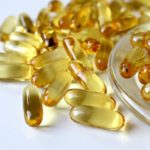The Japanese consume fish regularly as a staple part of their diet.
The Eskimos, who inhabit the Arctic regions, rarely suffer from cardiovascular or diabetic ailments. Japan, as a nation, also exhibits a low prevalence of these health issues.
Scientists attribute this phenomenon to the regular inclusion of fish in their diets. Fish oil, particularly from marine sources, is rich in omega-3 fatty acids, which have been shown to effectively reduce blood fat and prevent cardiovascular diseases.
Additionally, statistics indicate that Japanese women have a significantly lower incidence of breast cancer compared to other countries.

Fish oil, especially from marine sources, is abundant in omega-3 fatty acids.
Omega-3 fatty acids in fish are also beneficial for brain and eye development. Regular and appropriate consumption of fish by pregnant women and children can enhance cognitive function and overall health.
Conversely, a deficiency in DHA, an omega-3 fatty acid, can result in reduced intelligence and poorer vision, as reported by the American Journal of Epidemiology.
Why do the Japanese prefer marine fish over freshwater fish?
Firstly, they believe that freshwater fish are not as clean. Japanese associate freshwater fish with a grassy or muddy odor and consider them more susceptible to contamination. They favor the perceived cleaner and safer option of marine fish, especially those caught in the open ocean.
Secondly, Japan’s robust marine fishing industry and the diverse and delicious options it offers also contribute to their preference for marine fish.

Why do the Japanese prefer marine fish?
Being an island nation, Japan has a long history of marine fishing, with a coastline that stretches from north to south. The country enjoys an abundance of fresh and affordable seafood, and the Japanese have mastered the art of preparing fish in a variety of ways, from raw to cooked dishes.
Thirdly, Japan’s geographic characteristics make freshwater fish less palatable. The country is narrow, with mountains running through it, resulting in short, steep rivers with limited sediment. These conditions do not favor the development of flavorful freshwater fish.
Lastly, and most importantly, the Japanese are concerned about heavy metal contamination in freshwater fish. During the rapid economic growth and industrialization of the 1960s and 1970s, Japan faced significant environmental challenges due to chemical waste. Although efforts have been made to remediate and clean the rivers, there remains a lingering worry about the presence of heavy metals in the water and their potential accumulation in freshwater fish.
The rare exception to this preference for marine fish is salmon, a freshwater species that the Japanese adore. Salmon is known for its requirement of pristine water conditions and is considered a delicacy in Japanese cuisine.
Discover How Fish Oil Improves Skin Health and Treats Acne
Uncover the remarkable health and skin care benefits of using fish oil for treating acne and improving overall wellness in this enlightening article.






































